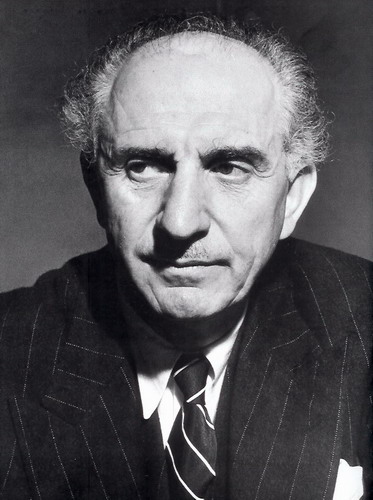

Georgios Papandreou was born in 1888 and as a young man became involved in antiroyalist politics. He served as a member of parliament, interior minister (1923), and in several other government posts during the Republic of 1924-35 and was considered a major force as Minister of Education under Eleftherios Venizelos in a period which saw vast improvement in Greece's educational system. He was imprisoned and exiled in 1936 by the Greek dictator John Metaxas before the Second World War and when freed was active in the Greek resistance, later heading the government-in-exile in Egypt. A staunch anti-Communist, he was not fanatic enough to get support of the United States in the fifties, who passed up his Center Union Party and supported instead General Papagos and later Constantine Karamanlis who were more to the right, leaving Papandreou as the voice of the opposition. Following a government scandal and the fall of Karamanlis' National Radical Union the Center Union party won the elections of November 1963. Papandreou's progressive policies as premier aroused much opposition in conservative circles as did the presense of his more liberal son Andreas Papandreou who had returned to Greece after twenty years in the US, leaving an impressive academic career. In July, 1965, he was dismissed by King Constantine II following a dispute over control of the ministry of defense during a scandal known as ASPIDA in which Andreas was accused of forming a secret society in the military that planned to overthrow the government and kick out the king. In the period after his dismissal the Papandreous traveled all over the country giving speeches and building support and in the next elections they were expected to win by a large margin. The election never happened. Once month before a military dictatorship led by Colonel George Papadopoulos overthrew the government and arrested the Papandreous. Andreas was sent into exile and Georgios was under house arrest until his death in 1968 when a million people marched in his funeral in defiance of the military dictatorship. It was the largest anti-junta demonstration. His son Andreas Papandreou formed the PASOK party and was PM for most of the eigthties and the beginning of the nineties. Papandreou's grandson George became the leader of PASOK in 2004 and is known as a progressive and popular leader in Greece.